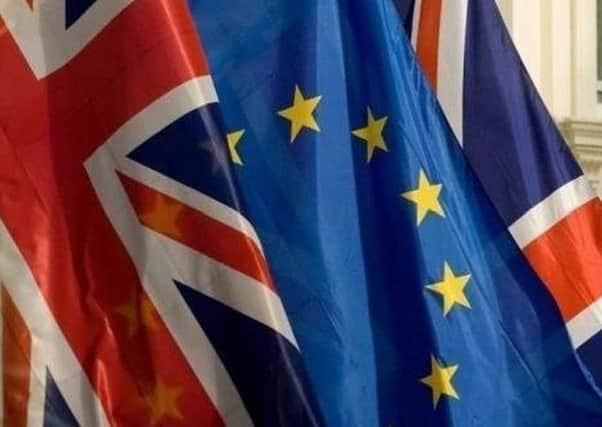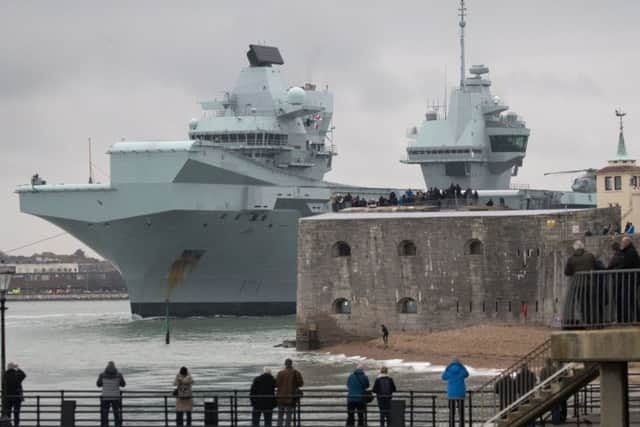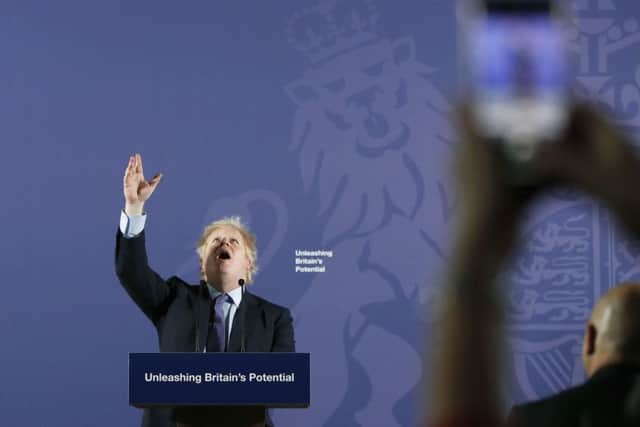Defence cuts don’t guarantee a safer world – Admiral Lord West


The linkages between globalisation, climate change and geopolitical competition must be better understood in the upcoming foreign, security and defence review.
The UK is not a superpower like the United States or China, but it is a global power unlike Japan or Germany – many think-tanks over the last 12 months have assessed the UK as the third most powerful and influential country in the world.
Advertisement
Hide AdAdvertisement
Hide Ad

That, of course, relates to the UK’s soft power – the English language, the BBC World Service; its academic excellence, with world-renowned universities; its scientific excellence; the arts; sport; its geographic position on Greenwich meridian, courtesy of the Navy, which makes it very handy for the City; the rule of law and globally respected legal system; and so on.
As an aside, I believe that we need to be very focused on ensuring the survival, and indeed growth, of the World Service and BBC Monitoring in any future BBC funding debate.
Advertisement
Hide AdAdvertisement
Hide AdEqual to, if not more important than, soft power is the hard power that backs up that soft power: nuclear weapons; a globally deployable military capability, with proven willingness to use it; world-class intelligence services; and membership of military alliances. Soft power is as nothing without hard power in any geopolitical context.


Historically, it was our nation’s military power that ensured that, with the United States, we were able to put in place, post-Second World War, a rules-based system for world order that has lasted to the greater good of the world until fairly recently.
That rules-based order is now under challenge, particularly by authoritarian regimes. Military power also ensured that we were a permanent member of the UN Security Council and our military power was a critical part of winning the Cold War.
We are in the process of leaving the EU and the review will need to assess what impact that has on defence and security. Personally, I think that it will make almost no difference to our military security and have only a minimal impact on our broader security.
Advertisement
Hide AdAdvertisement
Hide AdAs regards nuclear, I have an area of concern. There has been a steady dismantling of myriad treaties, primarily between Russia and the USA, that tried to limit the numbers and types of nuclear weapons and enhance confidence-building measures. Apart from the more general nuclear non-proliferation treaty, which will be reviewed in April and May, the only one remaining is the New START treaty, which will lapse in 2021 with nothing in its place.


The lack of dialogue between Russia and the US when both are spending trillions on updating and producing new nuclear wonder weapons – those that do not sit in any category previously looked at – is chilling. Both countries now seem to be of the opinion that nuclear weapons can be used for warfighting, which is madness. The situation is dangerous.
And the immense growth in threats from cyber attack in our increasingly digitised world must be confronted – indeed, we sometimes do this. We should embrace the fourth industrial revolution, maintaining our leads in AI, quantum physics and mathematics, but ensuring that our research is applied in all aspects of our lives and wealth.
Clearly, these changes have an impact on warfighting but they do not do away with the need for kinetic effect. Cyber is not an easy way to cut defence spending as, I am afraid, some in the Treasury and the National Security Council seem to think; rather, it will add to the cost.
Advertisement
Hide AdAdvertisement
Hide AdThere are a number of other key strategic factors. We are responsible for 14 overseas territories worldwide; we still run global shipping from London and we are the biggest European investor in south Asia, south-east Asia and the Pacific Rim, with consequent benefits to our balance of trade.
It is therefore not surprising that we need a maritime and global strategy. To help the UK compete more robustly against authoritarian competitors and, indeed, to create stability in failed and fragile states, both defence and diplomatic spending need to be made more efficient and then increased to levels akin to those of the past– as during the Cold War, for example. It is only in that way that we will make the world more stable.
We can no longer continue cutting defence spending while hoping that we, and the world, will stay safe.
Admiral Lord West of Spithead is a retired Royal Navy admiral and former minister. A Labour peer, he spoke in a House of Lords debate on defence – this is an edited version.